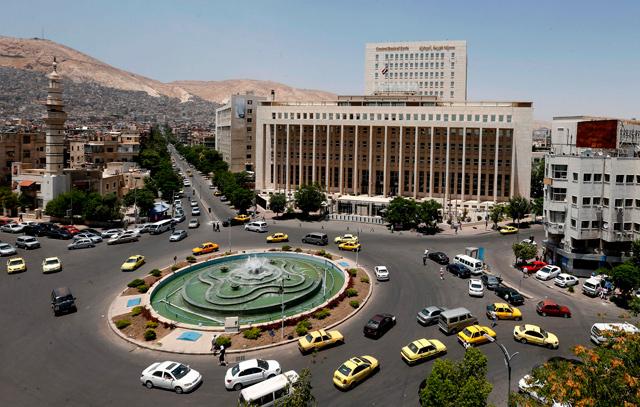You are here
Syria ups penalty for payments in foreign bills
By AFP - Jan 19,2020 - Last updated at Jan 19,2020
DAMASCUS, Syria — Syria’s President Bashar Assad on Saturday increased the punishment for transacting in foreign currencies to seven years hard labour, the presidency said, after the Syrian pound plummeted on the black market.
A new decree “upped the penalty for anybody who deals in anything other than the Syrian pound for payments, or any kind of commercial transaction”, it said.
The punishment was increased from up to three years detention to seven years hard labour, as well as a fine, the presidency said in a statement.
Alongside the use of foreign currencies, the punishment would also be applied to transactions paid in precious metals, it said.
The Syrian pound has sunk to 1,200 to the dollar on the black market in recent weeks, despite an official exchange rate fixed at 434 to the greenback.
Before Syria’s civil war broke out in 2011, the rate stood at 48 pounds to the dollar.
Syrians are alarmed by record hikes in key staples such as sugar and rice, while blackouts in government-held areas have increased over fuel shortages.
Pro-government economists blame the economic crisis on international sanctions against Damascus.
But they say the recent de-facto devaluation of the Syrian pound is due to a liquidity crisis in neighbouring Lebanon, which has long served as a conduit for foreign currency into government-held areas of Syria.
On Saturday, Assad also increased fines for circulating information that seeks “to undermine confidence in the strength of the country’s currency”, the presidency said.
Syria’s nearly nine-year civil war has battered the country’s economy, and depleted its foreign currency reserves.
An array of international sanctions have targeted Assad’s government and associated businessmen since the start of the war in 2011.
Related Articles
DAMASCUS — Steep bread and diesel price hikes went into force in government-held parts of war-torn Syria on Sunday, bringing more pain for c
Fierce fighting in Syria’s contested northern province of Aleppo killed at least 21 rebels on Monday as rockets slammed into a government-held district in the provincial capital, killing nine people.
DAMASCUS — Syria's central bank devalued the Syrian pound on Wednesday giving in to weeks of depreciation on the black market as new US sanc

Opinion
Apr 09, 2025
Apr 08, 2025
- Popular
- Rated
- Commented
Apr 08, 2025
Apr 09, 2025
Newsletter
Get top stories and blog posts emailed to you each day.


















